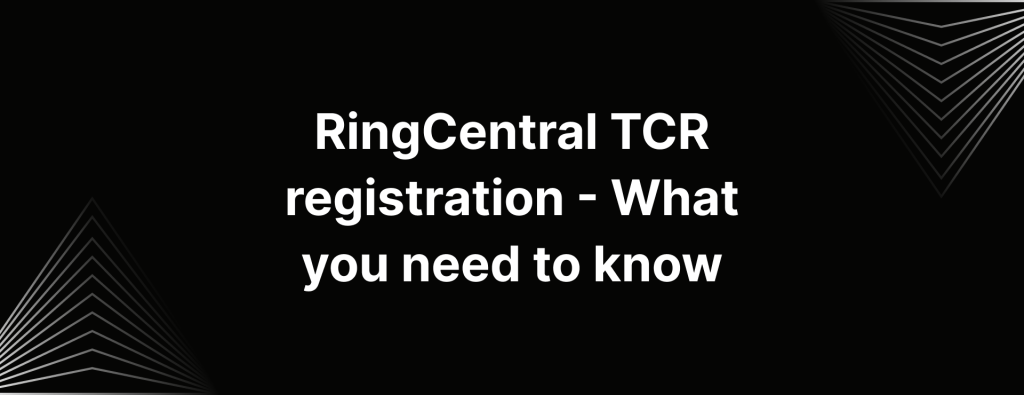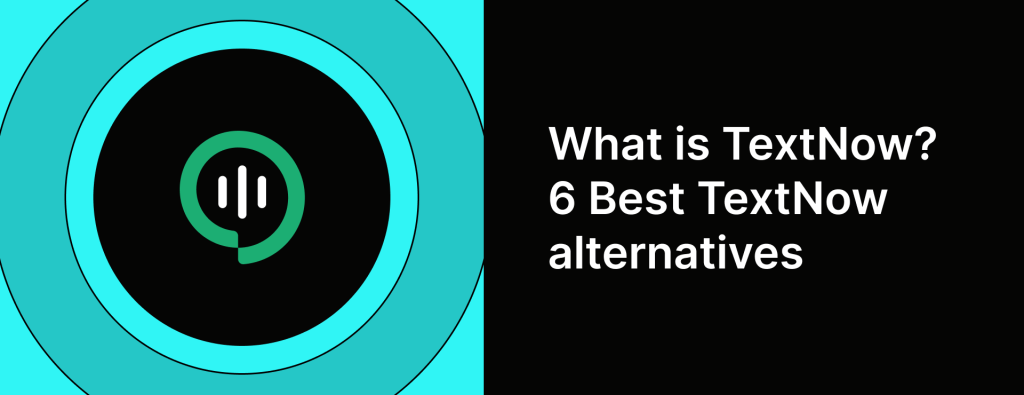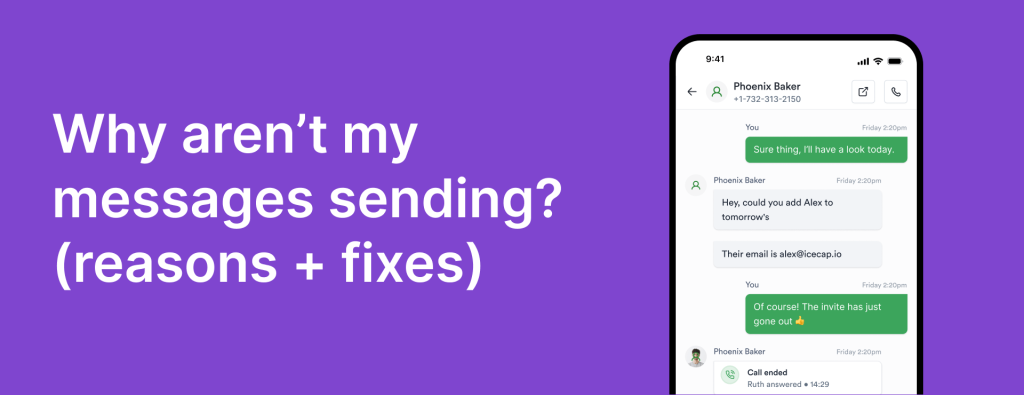Why text recruiting is big in 2024 (tips + templates)

Did you know? The average response time for a text message is 90 seconds.
If it isn’t already obvious, let me repeat this – text messaging is the most commonly used form of communication, especially among Gen-Z and millennials.
I mean, how many times do you check your phone every day?
I rest my case.
People aren’t a big fan of talking on the phone. Business text messaging is a less intrusive but more effective way of reaching those who screen their calls before picking up.
What is text recruiting?

Text recruiting is the use of text messages to notify open job positions, communicate with candidates, and maintain contact throughout the hiring process.
Business SMS text messages can be used throughout the entire recruitment process, from initial contact all the way to extending an offer letter – notify candidates about new job opportunities, send interview reminders, answer candidates’ questions, check-ins after an interview, etc.
If you’re a recruiter, SMS text messaging is an easy way to connect, engage and bring the top candidates straight to your door.
iTeleCenter, for instance, is a virtual phone system built for recruiting teams.
Why should recruiters use text messaging?

Candidates get hundreds of emails each day, meaning it’s easy for your message to get lost. In this fast-paced environment, if you are not set up to be mobile-first, then you’re missing out.
Candidates aren’t constantly checking their emails or answering phone calls from unknown numbers, but reading texts is another story.
Once again – do you know how many times you check your phone each day?
Fun fact: Recruiters have a reported response rates of 60 to 70% when they use SMS text messaging as a channel of communication with candidates.
Still unconvinced? Here are a few reasons you need to start text recruiting.
Younger generation relies on texting
More and more Gen-Z are entering the workforce, and millennials continue to move up their career paths, things are rapidly changing.
The whole remote-work movement or shift that we’re looking at … it’s the younger generation, candidates who are in their 20s and 30s who are advocating for it the most. The best way to reach these candidates in this day and age is through text messaging.
Remember, candidates, like to interact with recruiters on their terms, and most prefer text.
Texting is fast and easy
How many of your candidates are at their desks scrolling through countless job listings and emails? How many of them pick up calls from unknown numbers? Not many, they’ve got better things to do. By setting up automated text messages to your candidates, you’re notifying them about their dream job right at the tip of their fingers.
Text messaging for recruiting increases callbacks, hiring and reduces candidate wait times.
Get hold of hard-to-reach candidates
Not every candidate is on social media or on job boards, many aren’t. Texting is an effective way to quickly get in touch with these types of candidates and set up interviews.
While emails may be missed, text messages have direct access to the individual no matter where they’re located.
More interviews and fewer no shows
I think every recruiter has gone through the process of finding the right candidate, nurturing them and setting up an interview only to lead to a no show.
SMS text messaging can help by sending interview reminders the day prior or on the morning of their interview – get their phone buzzing and keep them notified.
Recruitment text message templates

To give you more of an idea of how you can use text messaging for the recruitment process, we’ve created some templates to help make sure you hit the right note.
Template to introduce yourself
Hi {first name}, {your name} from {your company}, here. There is an opening for {position} and based on your profile, I think it might be a great fit. Up for a quick chat?
Template to schedule an interview
Hello {first name}, we loved your profile, and we’d like to get you in for an interview. Would the 14th (Friday), 3:00 PM work for you?
Template to reduce no shows
Hi {first name}! Just a quick reminder that your interview is scheduled for 3:00 PM today. Here’s the address {map URL}. Please reach out me If you have any other questions.
Template to nurture and engage
Hi {first name}. Did you get a chance to look at the offer I sent you? As you can probably tell, we’re thrilled to start working with you. We’ll have to close the position by {day of the week}, so feel free to call me anytime if you have any questions.
Template to reschedule an interview
Hello, {candidate name}. We’ll have to reschedule your interview due to {reason}. Are you available on {Friday at 11 AM} instead? Does that work for you or do you prefer another day or time this week? I apologize for the inconvenience.
Template to get a fast reply
Hello, {first name}. We haven’t heard from you in a while. Are you still interested in {position} role?
Checklist: The dos and don’ts of recruiting via SMS texting

We’ve put together a checklist of all the text messaging dos and don’ts so that you can start off on the right foot.
The dos
- Get candidates’ permission – Get permission before texting candidates. You would want to comply with regulations now, wouldn’t you?
- Keep your messages short and personal – Try to keep messages under 320 characters. Be warm and personalizeyour messages. Candidates needs to feel that the recruiting text messages are coming from a person and not a bot.
- Be mindful about timing – Contact candidates during business hours and never text outside of these hours except when the candidate initiates it.
- Be professional – Make sure the texts are spell-checked and avoid using internet slang.
- Use text messaging for multiple reasons – Use texting to notify the candidates about a job opportunity, interviews, questions, follow ups, etc. Connect on a more personal level with text messaging.
The don’ts
- Avoid lengthy texts – Keep it short and to the point. Long text messages get ignored sometimes or might seem like a template.
- Don’t use your personal number – Get a company number and phone, If possible, to manage text recruiting. You don’t want your phone constantly buzzing even at 1 AM now, do you?
- If they opt-out, they’re out – Don’t text candidates who’ve opted out, could bring about unnecessary trouble with the regulatory bodies.
- Don‘t spam – Sending too many recruiting text messages may seem spammy. Reserve messages for job openings you know the candidate will be ideal for.
Bottom line
Texting opens up a recruiter’s options to find more potential candidates, connect on a deeper level and improve a candidate’s experience.
Oh, and feel free to use the text messaging templates as they are or modify them to fit your needs! Want to try the best texting service for your business? We’ve got you. Try iTeleCenter for free
Table of Contents
Test drive iTeleCenter for free
Try for free


